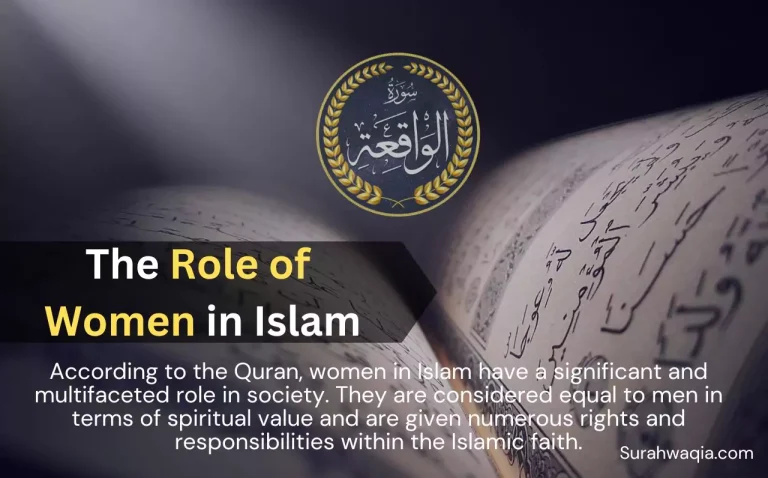Teesra Kalma | An In-depth Exploration of Kalima Tamjeed
Islam, a religion rich in rituals, doctrines, and beliefs, places immense importance on the recitation and understanding of the Six Kalimas. These statements encapsulate the core principles and doctrines of Islam. The Third Kalima, known as the “Kalima Tamjeed”, is one of these crucial pillars.
In this article, we delve into the profound significance, translation, and implications of the Teesra Kalma in the life of a Muslim.

Teesra Kalma | Introduction to Kalimas
The Kalimas, deriving from the Arabic root word ‘Kalima’ which means ‘word’ or ‘statement’, are pivotal declarations of faith in Islam. Comprising six distinct affirmations, they serve as a condensed summary of the fundamental beliefs that every Muslim is expected to internalize and declare. For someone exploring Islamic teachings, understanding the significance of these Kalimas provides valuable insight into the depth and breadth of the faith.
- The Essence of the Kalimas:
The central theme running through the Kalimas is the declaration of the Oneness of Allah (Tawhid), Prophet Muhammad’s (PBUH) prophethood, seeking forgiveness, and expressing the might and majesty of Allah.
- Structure and Content:
- First Kalima (Tayyab): The word “Tayyab” can be translated as “Pure.” This Kalima affirms the oneness of Allah. It translates as: “There is no god but Allah, Muhammad is the messenger of Allah.”
- Second Kalima (Shahadat): The word “Shahadat” means “Testimony.” This statement is a further affirmation of the first Kalima, acknowledging both the oneness of Allah and the prophethood of Muhammad (PBUH).
- Third Kalima (Tamjeed): “Tamjeed” denotes “Glory.” This Kalima, as we’ve discussed, emphasizes the glory and majesty of Allah.
- Fourth Kalima (Tauheed): “Tauheed” translates to “The word of Unity.” It magnifies the oneness and singularity of Allah.
- Fifth Kalima (Astaghfar): Derived from “Istighfar”, which means “Seeking Forgiveness.” This Kalima is a prayer seeking forgiveness from Allah for the sins committed.
- Sixth Kalima (Radde Kufr): “Radde Kufr” means “Refutation of Disbelief.” This Kalima is a rejection of polytheism and a firm declaration of monotheism.
- Importance in a Muslim’s Life:
For Muslims, the Kalimas are not mere words; they are a reflection of one’s faith and trust in Allah. Reciting them solidifies one’s belief and serves as a regular reminder of their commitment to Islam. These statements often form the initial teachings for young Muslims, highlighting their foundational importance in the faith.
The Teesra Kalma in Arabic reads
الْعَظِيْم سُبْحَان اللهِ وَالْحَمْدُلِلّهِ وَلا إِلهَ إِلّااللّهُ وَاللّهُ أكْبَرُ وَلا حَوْلَ وَلاَ قُوَّةَ إِلَّا بِاللّهِ الْعَلِيِّ
Its English translation is:
“Glory be to Allah and all praise be to Allah, there is none worthy of worship except Him, and Allah is the Greatest. There is no might or power except Allah, the Exalted, the Great One.”
Understanding the Components of the Third Kalima
The Third Kalima, known as Kalima Tamjeed, is rich with theological significance and depth. Each phrase contained within it isn’t just a set of words but carries profound insights into the nature and attributes of Allah and the core beliefs of Islam. Let’s delve deeper into the distinct components of this Kalima.
1. Subhan Allah: “Allah is perfect”
Meaning: The term “Subhan” in Arabic refers to the act of glorifying or declaring something as pure and free from any flaws or shortcomings.
Implication: When a Muslim says “Subhan Allah”, they are not only recognizing but also affirming Allah’s perfection. It underscores that God, in His essence, attributes, and actions, is free from any form of imperfection or deficiency. It serves as a counter-narrative to any anthropomorphic or flawed notions about Allah.
2. Allahu Akbar: “Allah is the Greatest”
Meaning: The phrase “Allahu Akbar” is often heard in various Islamic rituals, from the call to prayer to moments of personal reflection.
Implication: It is a declaration of supremacy and might. By stating “Allahu Akbar”, Muslims acknowledge that no force, entity, or being can compare to the greatness of Allah. This assertion humbles the believer and places all worldly matters into perspective.
3. Alhamdulillah: “All praise belongs to Allah”
Meaning: “Alhamd” translates to praise or gratitude. The phrase encapsulates an attitude of gratitude, recognizing that all positive attributes and blessings ultimately emanate from Allah.
Implication: “Alhamdulillah” isn’t just an expression for moments of joy but also during trials, signifying a believer’s enduring gratitude and trust in God’s wisdom. It instills an attitude of contentment and positivity in the life of a Muslim, recognizing the divine source of all blessings.
4. La ilaaha illa Allah: “There is no deity worthy of worship except Allah”
Meaning: This statement lies at the heart of Islamic monotheism. It unequivocally rejects any form of polytheism or associating partners with Allah.
Implication: It’s not just a theological claim but a transformative statement of purpose and direction in a believer’s life. It guides a Muslim’s actions, ensuring that they direct their acts of worship, reliance, and ultimate love towards Allah alone.
The Essence of Kalima Tamjeed
Kalima Tamjeed, also known as the Third Kalima, is an embodiment of a believer’s declaration of the grandeur and glory of Allah. At its core, it stands as a testament to the infinite attributes of Allah, emphasizing His absolute perfection, unmatched power, and all-encompassing knowledge.
- Omnipotence: By stating that “Allah is the Greatest”, the Kalima affirms the unlimited power and capability of Allah. Nothing in the universe can happen without His will, nor can any force rival His might.
- Omnipresence: The recognition that “Allah is perfect” highlights that His presence permeates every facet of the universe. He is aware of everything, from the minutest detail to the grandest event.
- Omnibenevolence: “All praise belongs to Allah” is an acknowledgment of His boundless mercy, grace, and benevolence. Every blessing, no matter how small, is a testament to His endless generosity.
By internalizing these concepts, believers are consistently reminded of their relative insignificance and dependency on Allah, fostering humility and gratitude.
The Role of Teesra Kalma in a Muslim’s Life
The Third Kalima isn’t just a set of words to be recited; it’s a compass that provides direction, purpose, and meaning to a Muslim’s life.
- Behavioral Impact: With the ever-present awareness of Allah’s omnipresence, believers are inclined to act righteously, avoid transgressions, and seek actions that earn Allah’s pleasure. The consciousness that Allah is constantly watching promotes accountability and ethical behavior.
- Spiritual Enlightenment: A genuine understanding and reflection on the Teesra Kalima can lead to an intimate bond with the Creator. The emotions of love, reverence, and awe dominate a believer’s heart, resulting in sincere worship, heartfelt supplications, and an insatiable desire to please Allah.
- Cognitive Reassurance: Life is filled with challenges, trials, and moments of despair. In these testing times, the Third Kalima serves as a comforting reminder. It reassures the believer that beyond the visible challenges lie the infinite power and wisdom of Allah. This conviction instills patience, resilience, and hope, propelling believers forward with a positive mindset.
Read About the last 2 ayat of Surah Baqrah benefits.
FAQs
Conclusion
The Teesra Kalma, like all Kalimas, serves as a spiritual compass for Muslims. It’s not just a set of words to be recited but a profound statement that shapes one’s beliefs, actions, and relationship with the Divine. Embracing its essence ensures a life lived in consonance with the teachings of Islam, fostering a deep connection with Allah.






